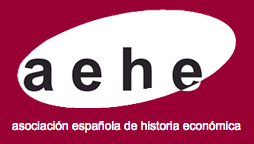Unravelling the Political Economy of Social Policy Formation: The Spanish Compulsory Maternity Leave, 1900-1936
DOI:
https://doi.org/10.33231/j.ihe.2024.03.004Keywords:
maternity leave, labour movement, employers, catholicism, women's movement, doctors, N33, N34, I38, J13Abstract
Maternity leave developed as part of the health insurance systems during the formation of most European welfare states, emerging as the first work-family policy. Although its expansion benefited from an ideological enhancement of maternity’s societal role, cross-country differences arose depending on distributive conflicts between social groups. Nevertheless, the political economy of such a policy has not been fully explored yet.This paper focuses on the Spanish case. Implemented in 1931 after more than thirty years of debates, compulsory maternity leave became the second Spanish compulsory social insurance. Throughout this process, controversies between the labour movement, employers, doctors and women’s movements were determinant in shaping and delaying the scheme’s development. The study analyses the debates between those groups during
the first third of the twentieth century and finds evidence of the different models in place, as well as significant intra-group cleavages based on ideology, class composition and sectorial and regional variance.
Downloads
Downloads
Published
How to Cite
Issue
Section
License
Copyright (c) 2024 Guillem Verd Llabrés

This work is licensed under a Creative Commons Attribution-NonCommercial-NoDerivatives 4.0 International License.
Aquellos autores/as que tengan publicaciones con esta revista, aceptan los términos siguientes
- Los autores/as conservarán sus derechos de autor y garantizarán a la revista el derecho de primera publicación de su obra, el cuál estará simultáneamente sujeto a la Licencia de reconocimiento de Creative Commons Reconocimiento-No comercial-Sin obra derivada 4.0 Internacional que permite a terceros compartir la obra siempre que se indique su autor y su primera publicación esta revista, y no permite hacer uso comercial de la misma ni tampoco obras derivadas.
- Los autores/as podrán adoptar otros acuerdos de licencia no exclusiva de distribución de la versión de la obra publicada (p. ej.: depositarla en un archivo telemático institucional o publicarla en un volumen monográfico) siempre que se indique la publicación inicial en esta revista.
Plagio y fraude científico
La publicación de un trabajo que atente contra los derechos de propiedad intelectual será responsabilidad de los autores/as, que serán los que asuman los conflictos que pudieran tener lugar por razones de derechos de autor. Los conflictos más importantes pueden darse por la comisión de plagios y fraudes científicos.
Se entiende por plagio:
- Presentar el trabajo ajeno como propio.
- Adoptar palabras o ideas de otros autores sin el debido reconocimiento.
- No emplear las comillas u otro formato distintivo en una cita literal.
- Dar información incorrecta sobre la verdadera fuente de una cita.
- El parafraseo de una fuente sin mencionar la fuente.
- El parafraseo abusivo, incluso si se menciona la fuente.
Las prácticas constitutivas de fraude científico son las siguientes:
- Fabricación, falsificación u omisión de datos y plagio.
- Publicación duplicada.
- Conflictos de autoría.





